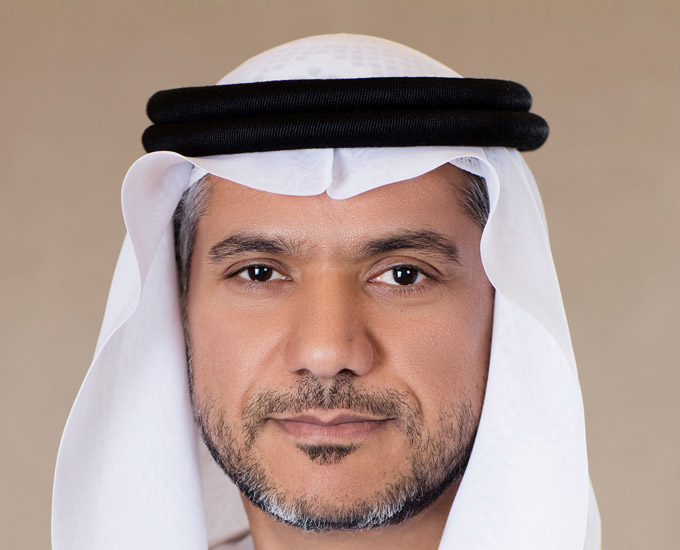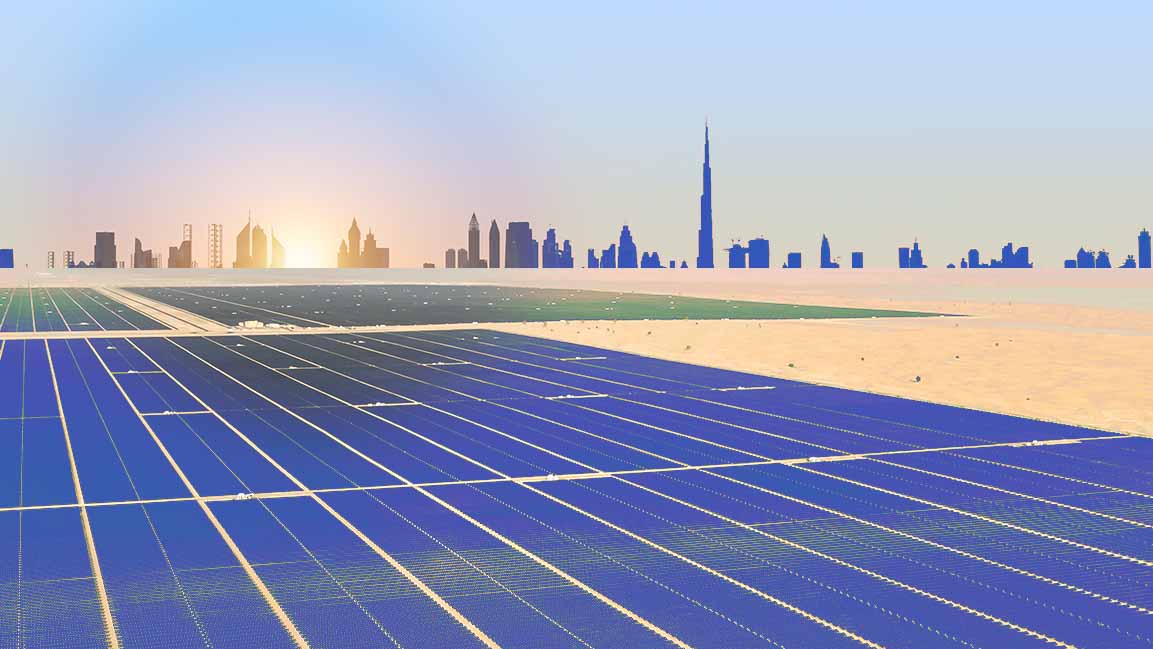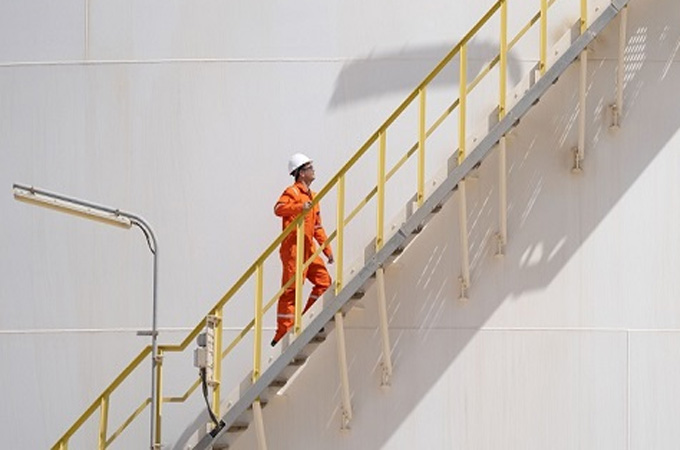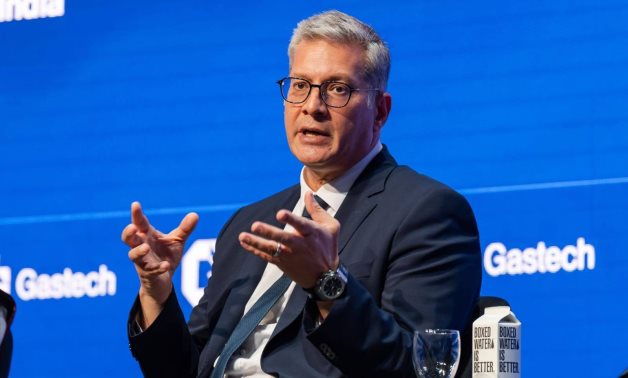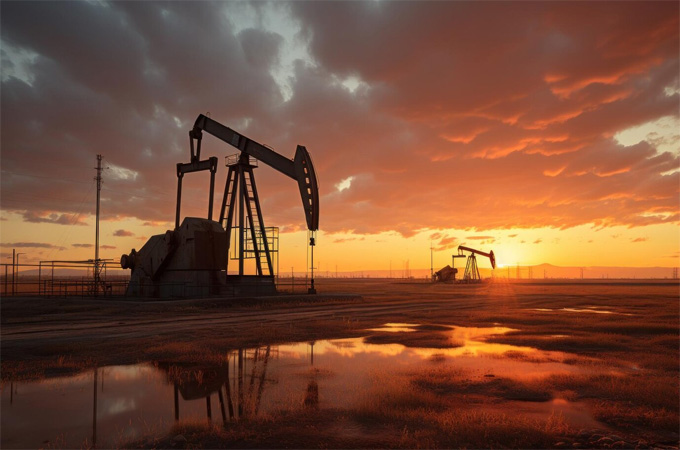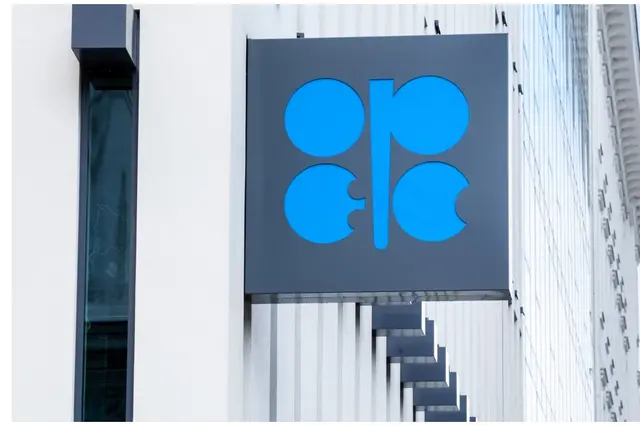Energy

Government, stakeholders discuss the Clean Cooking Energy Strategy and its importance
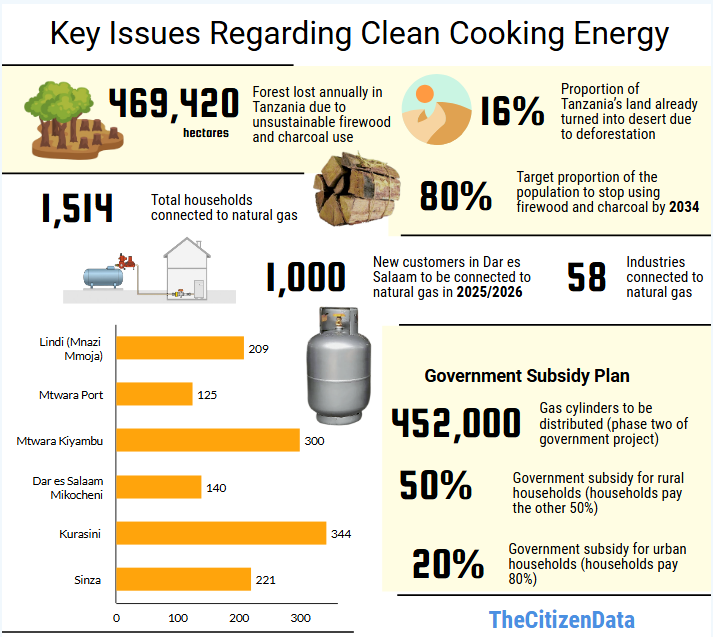
For Tanzania a country grappling with health, environmental, and poverty challenges clean cooking energy is not only a basic necessity but also a catalyst for genuine progress for both the people and the nation as a whole.
The effects of using dirty energy sources go beyond economic implications, extending to health and other social aspects.
According to the National Strategy for Clean Cooking Energy Use (2024–2034), Tanzania loses about 400,000 hectares of forest annually due to unsustainable use of forest resources, including logging for firewood and charcoal, which contributes to worsening drought in the country and causes ecological damage.
The National Environmental Master Plan for Strategic Interventions (2022 – 2032) states that nearly 16 percent of the country’s land area has already turned into desert due to deforestation.
To address this, the government launched the National Clean Cooking Energy Strategy, which aims to ensure that 80 percent of the population stops using firewood and charcoal by 2034.
To achieve this goal, the strategy outlines measures to facilitate the use of clean energy by improving access to raw materials and infrastructure for production, reception, storage, and distribution, in collaboration with the private sector to build clean cooking energy infrastructure.
Government institutions and implementation of the plan
In implementing this plan, the Tanzania Petroleum Development Corporation (TPDC), through its Marketing Manager, Neema Cleophace, says they have ongoing projects for the 2025/2026 financial year to connect 1,000 new customers in Dar es Salaam to natural gas.
Neema says TPDC also has projects for the 2024/2025 financial year to connect 1,000 households to natural gas in Lindi and Pwani regions.
So far, 1,514 households have been connected to natural gas, including 209 in Lindi (Mnazi Mmoja), 125 in Mtwara Port, 300 in Mtwara Kiyambu, 140 in Dar es Salaam Mikocheni, 344 in Kurasini, 221 in Sinza, and 72 in Mikocheni, along with other areas. In addition, 58 industries have been connected to the same energy source.
“Due to its efficiency, natural gas is cheaper compared to other energy sources like charcoal. Using natural gas instead of charcoal or firewood helps reduce deforestation, thereby protecting forests and the environment,” she said.
Neema adds that using natural gas for cooking reduces indoor air pollution and health risks caused by smoke.
These benefits are also acknowledged by the Tanzania Prison Service Spokesperson, Senior Assistant Commissioner of Prisons (SACP) Elizabeth Mbezi, who says they use energy derived from gas, alternative charcoal, and waste-based gas.
She explains that the main reason for adopting these sources is the ease of access, since obtaining firewood takes a long time and its use causes illnesses.
“The cost of firewood is high; alternative energy is much cheaper. Firewood produces a lot of smoke, which has severe health effects, and it also takes a long time to obtain. After observing these challenges, we switched to clean energy,” she said.
On her part, Zabibu Rajabu, a resident of Mtwara who uses a mix of clean and dirty energy, says she is unable to rely on only one source due to availability issues.
She admits to using LPG cylinders, which she finds healthier, but says she cannot stop using charcoal because refilling a gas cylinder is costly.
“I don’t like using charcoal every day, but one sack costs Sh1,500 and lasts me about a day and a half, while refilling gas costs up to Sh23,000. This amount is high. The government should consider ways to make gas more affordable,” she says.
Zabibu suggests that since TPDC gas is available in the region, if the government cannot lower LPG prices through subsidies, it should allocate a budget to connect residents to natural gas.
This concern is echoed by Mariam Said, a resident of Sabasaba in Mtwara, who says gas is healthier and cooks faster, but the cost is the main challenge.
“Our children sometimes go to school without tea in the morning because charcoal takes long to light and heat up. We have gas cylinders, but refilling them is expensive. My biggest barrier is my low income, though I would prefer to use clean energy,” she says.
Government’s commitment
In February this year, President Samia Suluhu Hassan, after launching the second phase of the project to distribute 452,000 gas cylinders to residents in Tanga, pledged that the government would introduce measures to make energy use more affordable by providing subsidies.
According to President Samia, the subsidy will cover 50 percent of the price of a gas cylinder for rural households, with residents contributing the remaining 50 percent.
For urban areas, she said the government will provide a 20 percent subsidy, with residents covering 80 percent of the cylinder price, in line with the Rural Energy Agency (REA) Act.
Unsafe energies
Human health expert Dr Ernest Winchislaus says smoke from firewood, charcoal, crop residues, and even tyres contains toxic substances, such as carbon monoxide.
He explains that these toxins cause respiratory diseases, pneumonia (especially in children), chronic lung disease, persistent cough, bronchitis, lung cancer (even in non-smokers), maternal and child illnesses, neonatal deaths due to oxygen deprivation, low birth weight, and pregnancy complications.
Dr Winchislaus cites World Health Organization (WHO) 2022 statistics showing that about 2.4 million people die globally each year due to the use of dirty cooking energy.
“Four out of five of these deaths occur among women and children near cooking stoves. Around 2.3 billion households worldwide still rely on firewood, charcoal, and crop residues as their main cooking energy source (IEA, 2023),” he says.
In Tanzania, more than 70 percent of households use firewood or charcoal for cooking, according to National Bureau of Statistics (NBS) / REPOA 2022.
He says clean energy use reduces harmful indoor smoke by over 90 percent.
“It lowers infant and maternal deaths, reduces respiratory illnesses, eases the burden on health facilities, prevents excessive deforestation (especially for firewood/charcoal), and reduces greenhouse gas emissions that contribute to climate change,” he explains.
Environmental analyst Dr Aidan Msafiri says dirty energy stays in the atmosphere for over 90 years, making it crucial to shift to clean cooking energy.
“As we suffer the impacts of climate change, the solution is to reduce carbon in water, land, and air, and one way to do this is by using clean energy,” he says.





